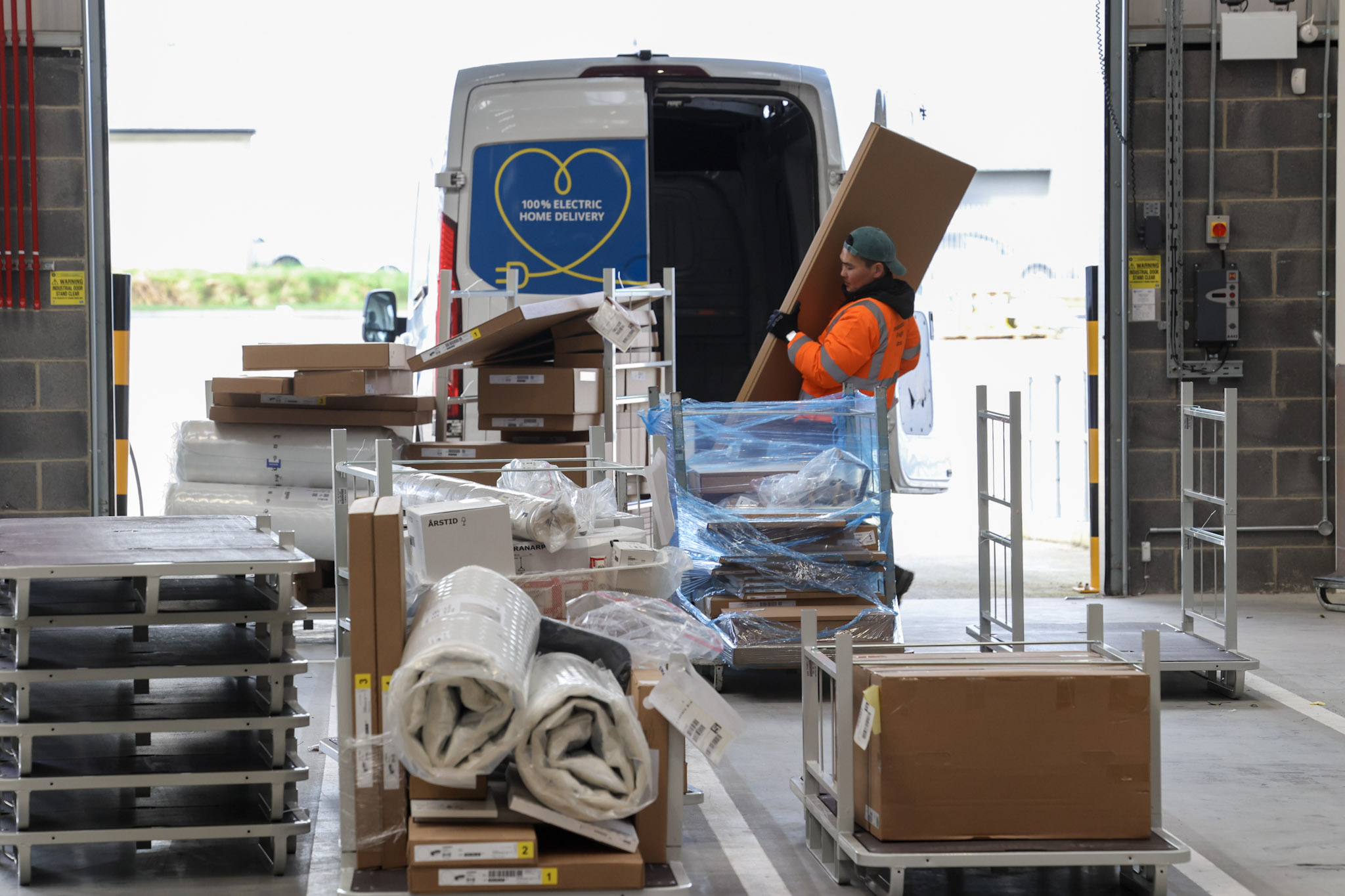Although he’s not in a position to give us his opinion on how to run a successful ecommerce business, few people were more practiced in the art of expansion than Napoleon Bonaparte. The Little Corporal came a cropper 200 years ago, finally succumbing at the battle of Waterloo in June 1815 and dying in exile some five years later. But prior to that, he had cut a Gallic swathe across Europe in double-quick time, the echoes of which can still be heard today if you know when and where to listen for them.
You may be wondering what this has to do multichannel retail. The defeat Napoleon’s army suffered in 1812, which involved the retreat from Moscow and led to the death of around 400,000 French soldiers, is often held up as an example of what can go wrong if your supply chain isn’t strong enough, or if it gets stretched so far that it simply breaks.
Rushing ahead, the Grande Armée eventually found itself way ahead of its supply chains. The starving French were massacred as they attempted to retreat. While it’s a clumsy segue into the world of warehouses and ecommerce expansion, there are lessons to be learned.
According to figures from ecommerce intelligence firm yStats, 29% of shoppers across Europe regularly buy from other EU countries and 17% buy from non EU countries. Many retailers are experiencing growing cross-border sales they want to cultivate. Deciding whether to outsource the management of your burgeoning international supply chain, or invest in your own estate, needs to be more than a dip-your-toe-in-the-water consideration. Any poorly-designed trial will lead to negative conclusions, after all.
No-one wants to feel the cold hand of wintery defeat on their shoulder, so what are some of the less-than-obvious considerations you should familiarise yourself with, and what might you learn from the experience of others.
Get your skates on
SkatePro is a Danish retailer selling all things skate and skateboard related to customers across Europe, and is the largest skate shop in Scandinavia.
It sells to 26 European countries, with a direct web presence in 10 of them, and is in the process of opening its own network of stores. With a history of growth and expansion, how does Carsten Schmidt, one of the Partners at SkatePro, regard the issue of outsourcing, especially where warehousing is concerned.
“It’s simple,” he begins. “We don’t outsource anything. It’s all developed and managed in-house.
“We tried outsourcing in the past – we had someone else doing delivery for us. But we like to do lots of campaigns, and we like to do them when we want to, sometimes that means doing things at short notice. You really struggle to find a third party who can keep pace with you.”
Although SkatePro has been around since 1996, Schmidt only became involved in 2010. Prior to that, from 2003 to 2009, he was the co-owner of an IT reseller, which is where the importance of slick, effective distribution first became apparent to him.
“In that sector you operate on tiny margins,” he explains. “So you have to rely on your picking and distribution. At first, we were using paper-based systems, but we were growing fast so we had to develop our own systems.”
After selling his share in the IT reseller, Schmidt invested in SkatePro, having already known the company’s founder, Jakob Høy Biegel for some time. Back in 2010, the company sent out a total of around 10,000 parcels. Now it ships more than 3,000 per day during peak season.
“I brought in many of the tools and technology we’d developed selling IT to facilitate our growth plans. We ship to Sweden and Norway in one day, Finland in two, and we’re improving order times for countries to the south all the time.
“Currently we have one fulfilment centre and one overflow warehouse, and we’ve just signed for an additional 4,000m2 which will go on stream in 2016. We’ve got 82 employees and we offer customer service in 12 languages. Our people are always checking product quality and suitability. They all know the products and what they ought to be like – they tend to be skaters or boarders and into the whole scene.”
Sofa so good
Different retail categories come with their own particular nuances and needs, but do considerations such as growth cut across differences? Are there stepping stones that everyone follows that, essentially, take you on a journey from outsourcing to owning your warehouse infrastructure?
Perhaps not if you’re selling skates, boards and skate accessories. You can no doubt fit a lot of boards in your own warehouse and on the back of your own trucks, and any product that’s steeped in a cultural – or counter-cultural – context needs handling by people who are part of that culture to add real value to the customer relationship.
What about something bigger, something more stationary… like furniture.
Furniture and homewares retailer Wayfair has always operated mainly as a drop-ship business. Recently though, that tide has started to turn, to the point where it now has its own warehouses and holds stock on behalf of its suppliers.
This transformation, driven by several factors, exemplifies the importance of considering a situation from all angles, as Wayfair Europe’s General Manager Maxim Romain explains.
“We realised that for some of our top sellers there could be an advantage in holding stock. It’s good for availability and for lead times – and that can give you a higher conversion; shorter lead times encourage more purchases. And so our US operation started stocking these more popular items.”
Initially outsourcing this strategy, Wayfair had a change of heart which gets to the core of the question of how you manage your operations; can you find partners that are a great fit for your business?
“It wasn’t long before we realised there were few 3PLs who could actually do what we needed,” says Romain, a man who rose up through the ranks of Wayfair from a logistics and operations background, and who has a deep sense of what works, and what doesn’t.
“In the furniture business there are requirements like re-packing the stock before you fulfil an order, and these are important considerations. Can you find a 3PL that can do this? Possibly. Can you find several in different territories that can do it to your standards, and do it consistently well? That is much harder.
“So we decided it is important for our business to master fulfilment in the long term, and we invested in our own warehouse.”
After initially renting warehouse space, Wayfair has started building its own, and fulfils around 20% of orders in the US from these. It is even now holding stock and acting as a proxy 3PL for some of its suppliers, a move that has the potential to turn its investment in warehouses into a source of revenue.
Flexibility required
Of course, there is always a trade off between price and service, and 3PLs aren’t always simply to blame for not doing what’s required of them.
Bob Montague, Managing Director of Berkshire-based fulfilment solutions specialist, Walker Logistics, has seen it from the other side of the fence: “On a number of occasions we’ve been invited to tender for a contract that requires a bespoke supply chain service involving, say, multiple storage options, piece picking and a range of value added services. Then we find the client’s put the business with a ‘transport shed’ that offers the lowest pallet storage price.
“There’s a lot of overcapacity in the logistics market and many of the larger multinational providers operating in the arena are adding to the challenges the industry faces with aggressive pricing policies.
“However, companies should be aware that while many 3PL operators are great at moving pallets around, they’re not interested in things like breaking down cartons and other aspects of a contract where lots of transactional activity is involved and can’t provide the sort of value-added services that, for example, retailers – particularly internet retailers – need.”
Peter Ward, CEO of the UK Warehousing Association (UKWA), sees a bright future for 3PLs, but cautions that it won’t be plain sailing.
“A few years ago, deciding whether to use a 3PL or not was largely a matter of opportunity cost – what’s our core competency, let’s get a service provider in to take care of the rest.
“But that’s all changed and decisions are being driven by an unprecedented change in customer behaviour. Whether food or non-food, people are focusing on convenience – on local, on next-day, little and often. That’s why there’s been a proliferation of convenience stores.
“Consumers are increasingly doing things on the hoof, but the legacy model was built around fulfilment via large out of town centres using large warehouses that were set up to replenish the large weekly shop. That’s declining.
“In addition there are smaller stores in towns that need constant restocking. You have to follow that back up the supply chain – stock isn’t coming to the store from a national DC, it’s coming from smaller, urban fulfilment centres.”
Greater collaboration
There isn’t an abundance of land available in urban and suburban areas to site warehouses. What land there is is often used to build houses, where the returns are both large and quickly realised. Finding alternatives to the current network – large, infrequent – and getting round the constraints of building a succession of warehouses for each retailer, throws the spotlight once again on 3PLs. But only those that can start to offer value-added services and find sustainable ways to price them.
Combining several retailers’ requirements, making full use of space, whether in a shed or on a truck, will be vital too; the road network isn’t going to increase to accommodate the growing amount of ecommerce deliveries being made.
Deciding whether to outsource or not isn’t a one-size-fits-all analysis. If stability is more important to your business than dealing with change, outsourcing can help give you that. Especially if you lack the skills in-house, and don’t intend to make the investment in expertise required.
However, if you are expanding internationally and need consistency, or are operating in a market where specialist product knowledge – and handling – is important, then making that investment could be a wise move.
You can’t do it half-heartedly though. You might be an up-and-coming ecommerce startup sensation, but you’re going to need someone with decades of experience to help you get the most from your warehouse investment.
This feature first appeared in the third print edition of eDelivery magazine, EDM03.













